Accounting Principles 7Th Canadian Edition Volume 1 By Jerry J. Weygandt
TABLE OF CONTENTS
Chapter 1Accounting in Action 2Accounting Keeps Corus on Air 2Why Is Accounting Important? 4Using Accounting Information 5Objective of Financial Reporting 7Forms of Business Organization 7Proprietorship 8Partnership 8Corporation 8Generally Accepted Accounting Principles 9Ethics in Financial Reporting 9Conceptual Framework 11Accounting Standards 14The Accounting Model 16Financial Statements 16The Expanded Accounting Equation 20Transaction Analysis 21Preparing Financial Statements 27Income Statement 27Statement of Owner’s Equity 27Balance Sheet 29Cash Flow Statement 29Understanding the Information in the Financial Statements 29Chapter 2The Recording Process 58Slaying the Dragons to Brew Up Sales 58The Account 60Debits and Credits 60Double-Entry Accounting 63Analyzing and Recording Transactions 64The Accounting Cycle and Steps in theRecording Process 64The Journal 66The Ledger 69Posting 70The Recording Process Illustrated 71Summary Illustration of Journalizing and Posting 75The Trial Balance 77Limitations of a Trial Balance 79Locating Errors 79Some Process Explanations 80Chapter 3Adjusting the Accounts 114Advance Sports Revenue Is Just the Ticket 114Timing Issues 116Accrual Versus Cash Basis Accounting 117Revenue and Expense Recognition 118The Basics of Adjusting Entries 119Adjusting Entries for Prepayments 121Adjusting Entries for Accruals 128The Adjusted Trial Balance andFinancial Statements 135Preparing the Adjusted Trial Balance 136Preparing Financial Statements 136Chapter 4Completion of the Accounting Cycle 170A “Cut Above” in Bookkeeping 170Closing the Books 172Preparing Closing Entries 172Posting Closing Entries 177Preparing a Post-Closing Trial Balance 178Summary of the Accounting Cycle 180Steps in the Accounting Cycle 180Correcting Entries—An Avoidable Step 181Classified Balance Sheet 184Standard Balance Sheet Classifi cations 184Alternative Balance Sheet Presentation 189Using the Information in the Financial Statements 191Working Capital 191Current Ratio 191Acid-Test Ratio 192Appendix 4A: Work Sheets 193Appendix 4B: Reversing Entries 197Chapter 5Accounting for Merchandising Operations 236A “Frank” Look at Tracking Inventory 236Merchandising Operations 238Inventory Systems 239Recording Purchases of Merchandise 241Subsidiary Inventory Records 242Freight Costs 243Purchase Returns and Allowances 243Discounts 244Summary of Purchase Transactions 245Recording Sales of Merchandise 246Freight Costs 247Sales Returns and Allowances 248Discounts 249Summary of Sales Transactions 249Sales Taxes 250Completing the Accounting Cycle 250Adjusting Entries 251Closing Entries 251Post-Closing Trial Balance 253Summary of Merchandising Entries in a Perpetual Inventory System 253Merchandising Financial Statements 255Single-Step Income Statement 255Multiple-Step Income Statement 256Classified Balance Sheet 258Using the Information in the Financial Statements 259Gross Profit Margin 259Profit Margin 260Appendix 5A: Periodic Inventory System 261Chapter 6Inventory Costing 300A Fresh Approach to Costing Inventory 300Determining Inventory Quantities 302Taking a Physical Inventory 302Determining Ownership of Goods 303Inventory Cost Determination Methods 305Specific Identifi cation 305Cost Formulas: FIFO and Weighted Average 306Financial Statement Effects 313Choice of Cost Determination Method 314Inventory Errors 316Presentation and Analysis of Inventory 320Valuing Inventory at the Lower of Cost and Net Realizable Value 320Reporting and Analyzing Inventory 323Presenting Inventory in the Financial Statements 323Appendix 6A: Inventory Cost Formulas in Periodic Systems 326Appendix 6B: Estimating Inventories 330Gross Profit Method 330Retail Inventory Method 331Chapter 7Internal Control and Cash 360Keeping Track of the Cash 360Cash and Internal Control 362What Is Cash? 362Internal Control 363Control Activities 363Limitations of Internal Control 367Cash Controls 368Internal Control Over Cash Receipts 368Internal Control Over Cash Payments 371Petty Cash Fund 373Establishing the Fund 373Making Payments from the Fund 373Replenishing the Fund 374Bank Accounts 375Use of a Bank Account 375Reconciling the Bank Account 379Reporting Cash 385Chapter 8Accounting for Receivables 420Last Call for Customer Payments 420Accounts Receivable 422Recognizing Accounts Receivable 422Valuing Accounts Receivable 425Notes Receivable 434Recognizing Notes Receivable 435Disposing of Notes Receivable 436Statement Presentation andManagement of Receivables 438Presentation 438Analysis 439Accelerating Cash Receipts from Receivables 440Chapter 9Long-Lived Assets 468Capitalizing on Education 468Property, Plant, and Equipment 470Determining the Cost of Property, Plant, and Equipment 470Depreciation 474Revising Periodic Depreciation 482Disposal of Property, Plant, and Equipment 486Natural Resources 493Cost 494Depletion 494Disposal 495Intangible Assets and Goodwill 496Accounting for Intangible Assets 496Intangible Assets with Finite Lives 497Intangible Assets with Indefi nite Lives 498Goodwill 499Statement Presentation and Analysis 500Presentation 500Analysis 501Chapter 10Current Liabilities and Payroll 528Butterflies Bring About Better Banknotes 528Determinable (Certain) Current Liabilities 530Accounts Payable 530Unearned Revenues 530Operating Line of Credit and Bank Overdraft 531Short-Term Notes Payable 532Sales Taxes 533Property Taxes 534Current Maturities of Long-Term Debt 535Uncertain Liabilities 536Provisions 536Contingencies 540Payroll 541Employee Payroll Costs 542Employer Payroll Costs 544Recording the Payroll 545Financial Statement Presentation 550Appendix 10A: Payroll Deductions 551Appendix A: Specimen Financial Statements; Corus Entertainment Inc. A1Appendix B: Sales Taxes B1Appendix C: Subsidiary Ledgers and Special Journals C1Company Index CI-1Subject Index I-1




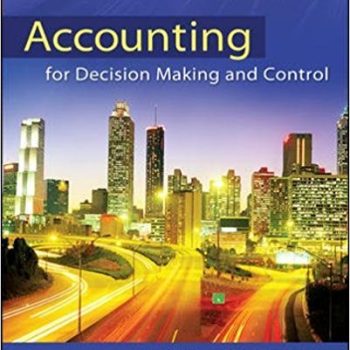
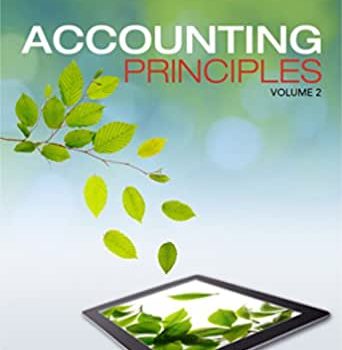
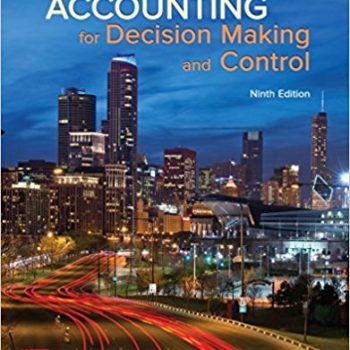
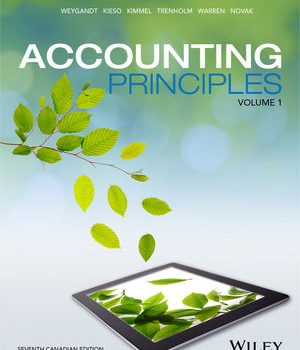
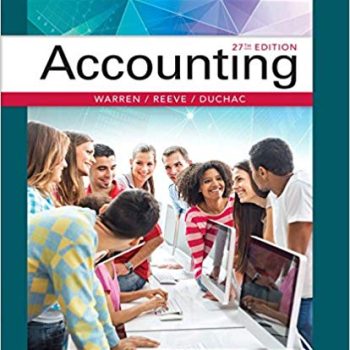
Reviews
There are no reviews yet.